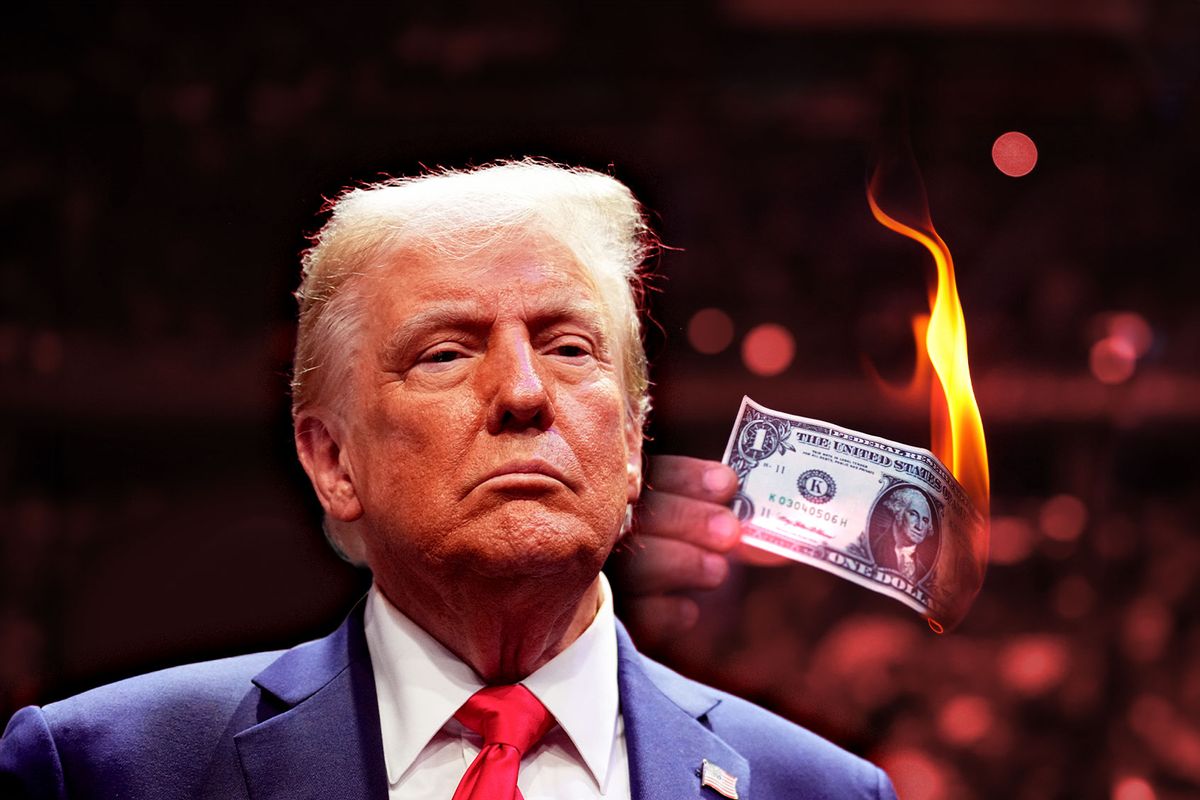Presidents don't have the ultimate say in how the economy performs. Take a look at the stock market surge that followed Donald Trump's victory and how it has since cooled.
But Trump's plans for the economy — some broad and vague, others more specific — could affect the money Americans make and keep, depending on which strategies are put into action. Some would need approval from Congress, and some — such as interest rates — Trump can't touch, at least not under current law.
Trump will take office in an economy that has strengthened in recent months, with a decline in interest rates, unemployment numbers and inflation. But the potential impact of his proposed hikes in tariffs and mass deportation of undocumented immigrants throws uncertainty into the economy's future.
“I will be interested to see if the president-elect takes a slow and measured response to implementing promised change or a more full-force approach,” said economist Gary “Hoov” Hoover, professor and executive director of Tulane’s Murphy Institute.
“It might be possible to have the largest deportation in American history, but without noting which undocumented workers substantially contribute to the economy, the results could be disastrous. It is rarely the case that political rhetoric lines up with economic realities.”
Most experts agree that if enacted, Trump’s changes could have a chaotic impact on the global economy and spark a rise in inflation and consumer prices, particularly if tariffs rise to the higher range he has suggested — 60% or more on goods from China.
Hoover notes that there are ways Trump might skirt the legislative process to enact his will as he appoints people to leadership positions ranging from health care to the U.S. Treasury.
“The best protection is the democratic process and voting. At this point, changes are coming. However, the chaos of the change does not need to be permanent,” Hoover said.
We need your help to stay independent
Mortgage rates and housing
Melissa Cohn, a Florida-based regional vice president of William Raveis Mortgage and 42-year veteran of the industry, said Trump’s policies don't look good for mortgage rates.
“Unfortunately for the mortgage world, his policies on tariffs, immigration and tax cuts are all inflationary, and as such, the bond market has been reacting,” she said, noting the current devaluation of bonds.
But John Grace, a principal at LPL Financial and founder of Westlake Investors Advantage in southern California, said a president has little to do with the housing market; Grace relies on Census Bureau statistics for trend-casting.
"If you don't love it, sell it. Take your chips off the table"
He said baby boomers, now in their late 70s, will soon put millions of homes on the market, creating a surplus and a cratering of home values. He’s advising his clients — especially those investing in real estate — to prepare for a crash in the housing market. “When I'm talking to those with multiple homes, my attitude is, if you don't love it, sell it. Take your chips off the table.”
IRAs, 401(k)s and investment accounts
The overall sense is that Trump’s pledge to increase tariffs and deport millions of undocumented immigrants could hurt businesses and cause instability. The stock market initially shot up after the election presumably because investors anticipated a business-friendly administration with fewer guardrails.
On Friday, Federal Reserve Chair Jerome Powell said the economy is strong enough that policymakers don't need to be "in a hurry" to lower rates, bringing investors down to earth from the post-election high.
Trump has recently put pressure on Powell to resign so he could have more control, but Powell has refused. “The idea of the president-elect fully controlling the Federal Reserve or its chair is the stuff of his dreams,” said Rita Martinak, a certified business economist.
"All bets are off, and everyone's going to have to reassess the marketplace"
“The problem we have now is that with the election of Mr. Trump, all bets are off and everyone's going to have to reassess the marketplace,” Cohn said. “Powell was pretty clear that he reacts to actual economic data, and that he's not going to react to the election, but he'll react to what the policies of the new president do to the economy.”
The stock market is also sensitive to uncertainty, which means there could be a wild ride of highs and lows. If Trump's full plan of mass deportation goes into effect, not only will taxpayers pay for most of it, but businesses are expected to pay higher labor costs to replace those workers.
Higher tariffs, which Trump can enact without approval from Congress, would mean manufacturers will either pass prices onto consumers or lower their profit margins, which affects investor enthusiasm.
On the flip side, cryptocurrency is projected to do well under a Trump administration with limited regulatory hurdles.
How to protect yourself
Martinak suggests shoring up emergency funds and diversifying investments across different asset classes to mitigate risk.
“Paying down high-interest debt should be your priority because it reduces financial vulnerability,” she said. “I advise everyone to stay updated with economic news and policy changes to make informed financial decisions.”
Cohn thinks people should sit tight before liquidating all their assets — especially if selling off their home and stocks could lead to tax penalties.
“I think that we all need to take a deep breath, that we need to see how this is actually going to unfold,” she said. “We've been through periods of potential uncertainty before and the best course of action is to continue to march on and not to just completely dismantle yourself.”
Read more
about personal finance



Shares